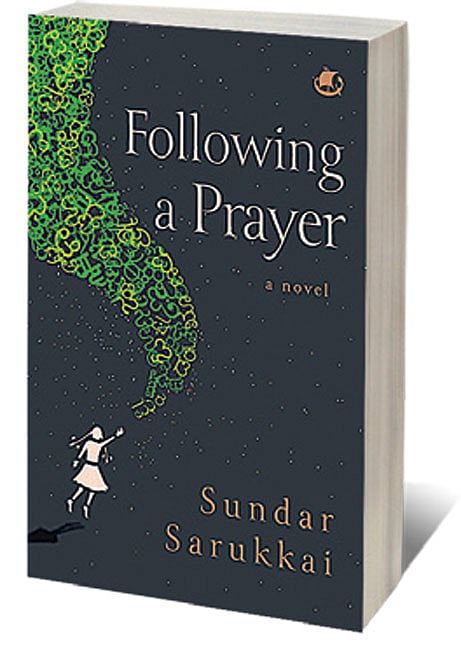Speech and Silence

WHAT ARE WORDS, and what power do they have? If they have any power, that is. To reach out to the gods? But what are gods? Is there a god (or more gods than one)? Or do gods reside only within ourselves, as many thinkers have reiterated time and again?
Weighty questions. Questions that have been long debated and thought over, across the ages and across spaces. To expect children to be able to understand these questions and to perhaps find the answers to them on their own might seem an impossible endeavour; but this is what Sundar Sarukkai sets out to do in his novel Following a Prayer. This is the story of twelve-year-old Kalpana, who lives in a village in Karnataka with her parents; her younger sister Deeksha, who is ten years old; and Ajji, their grandmother.
One rainy morning, Ajji is busy saying her prayers when Kalpana is about to leave for school. Chatty, irrepressible and irreverent, Kalpana asks her Ajji: “Who is listening to your prayer? Where does your prayer go? Where do your words go?” As Ajji later recalls it, ‘I ignored her, but she became more irritating. The moment the rain stopped, I shouted out my prayer into the wind and the clouds, I told her, “Now go. Go and follow these words.”’
Ajji meant it as a joke, words spoken in annoyance, never meant to be taken seriously. But Kalpana follows Ajji’s prayer, goes deep into the forest—and is missing for three days. When she returns to a frantic family and a village that has been searching for her all this while, Kalpana has gone silent. She cannot speak. Or will not speak: her family cannot tell. While they take her to a series of doctors and try to discover what has happened, Kalpana’s younger sister Deeksha begins to probe, to try and understand why her Akka is quiet. When Kalpana responds and gives her sister a clue to why she is silent, Deeksha begins a quest of her own: along with her classmate and best friend, Kumari, she sets out to explore the world of words. Kalpana, curious and wanting her own questions answered, joins in, as they seek answers to a plethora of questions. Their Kannada teacher, their science teacher, a village woman who is a singer: all of these are roped in. There are debates, there are experiments, there are conclusions drawn, and there are more questions.
Imran Khan: Pakistan’s Prisoner
27 Feb 2026 - Vol 04 | Issue 60
The descent and despair of Imran Khan
Sarukkai uses his novel as an interesting means of tackling several age-old questions. Not just about words or the existence (or nature) of a divinity, but much more. How music fits into our universe; how music achieves things words cannot, and communicates where words fall short. How the brain rules our deeds and words, how mathematics is truth and beyond the lies that may be inherent in language.
Sarukkai, who is the founder of the Barefoot Philosophers initiative, which aims to take philosophy to the common people, especially to children, does a competent job through Following a Prayer of doing just this: of breaking philosophy down into easy chunks, into simple thoughts and questions that everybody can relate to. He strips away the more daunting aspects of the philosophy he discusses in this novel, and by making children the protagonists—protagonists, too, who come to their own conclusions instead of referring to high-flown books and mouthing the thinkers of yore—he is able to bring philosophy to the level of the average reader. The questions Deeksha, Kumari and Kalpana ask may well be ours; the conclusions they reach may be ours; and the questions that still remain, may be ours as well.
The language of the novel is simple, in some ways reminiscent of RK Narayan, and the characters who people it—even other than the children—are real, believable people. An interesting book, and a thought-provoking one.

